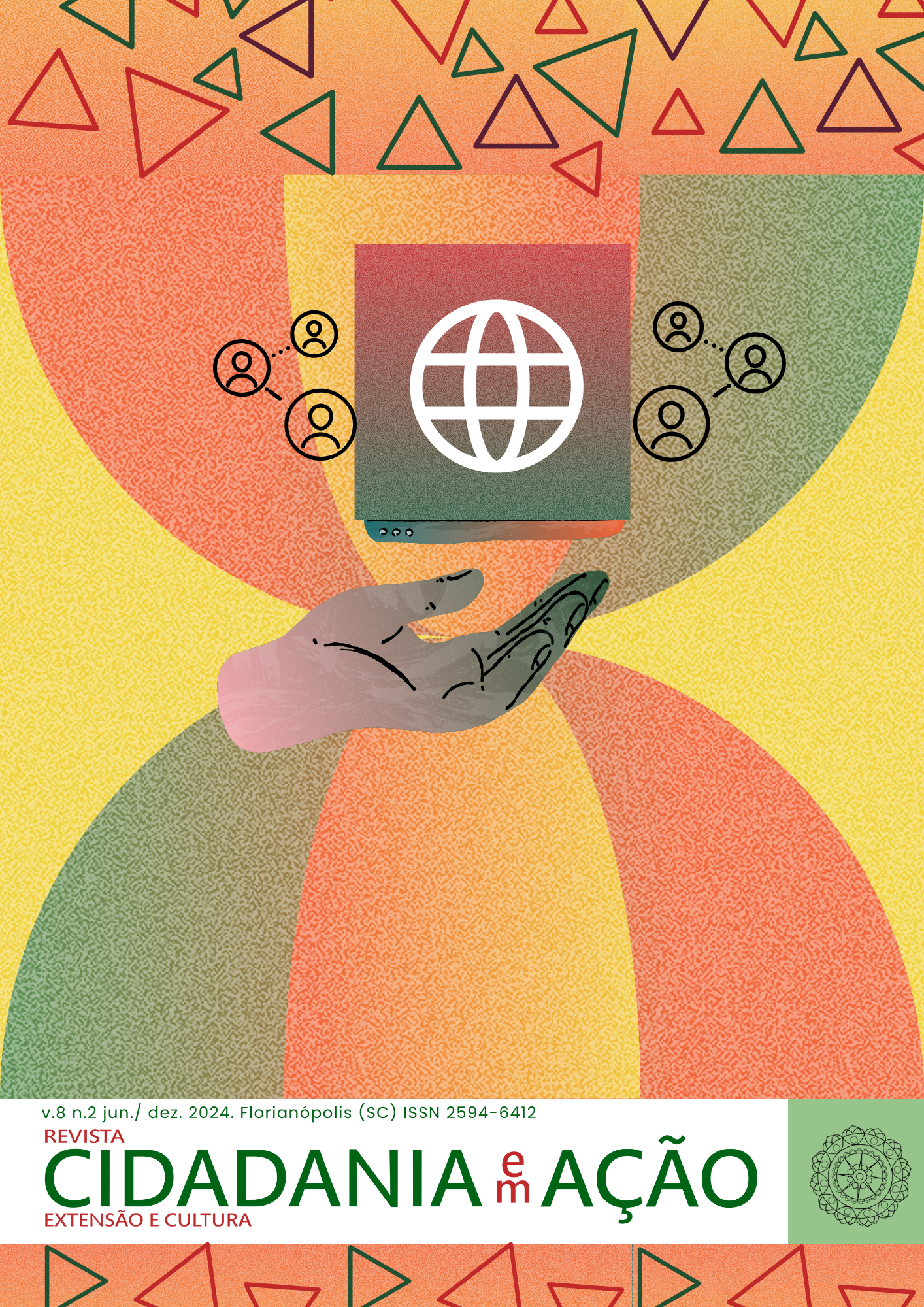How to approach the 17 SDGs in a practical and interdisciplinary way: an extension action
DOI:
https://doi.org/10.5965/259464120802e6880Keywords:
SDGs, high school, education, teacher trainingAbstract
How to approach the 17 SDGs (Sustainable Development Goals) in a practical and interdisciplinary way was an extension action, in the format of an EAD course, developed and offered by a student of a specialization course at the Federal Institute of Santa Catarina. The extensionist action is optional in the Specialization in Technologies for Professional Education course and to participate, the student presents a project. In the case of this report, it is an EAD training course for high school teachers, addressing the use of the 17 SDGs in the classroom, with digital technologies. The course's premise was to contextualize, understand and apply in practice the discussion about the progress of actions to meet sustainable goals in Brazil, and the importance of working on the theme in an interdisciplinary way, using digital tools and in the distance learning format. Most of the workload was asynchronous, with a synchronous activity, via Webconference, for setting up and evaluating the course. 40 vacancies were offered, with 32 enrolled and 20 effective participants, certified at the end. The participants considered that the course met expectations, and also pointed out that the practices suggested in the course are feasible in a face-to-face school environment and in distance learning courses. Didactic resources whose content deals with the SDGs were experimented, using free access digital tools such as videos, games, and the production of didactic material, providing a new look at the use of these tools, little used in pedagogical practice.
Downloads
References
BRASIL. Ministério da Educação. Base Nacional Comum Curricular. Brasília, DF, 2017.
INSTITUTO FEDERAL DE SANTA CATARINA. IFSC confirma pactuação com Objetivos de Desenvolvimento Sustentável. Disponível em:
https://linkdigital.ifsc.edu.br/2017/03/31/ifsc-confirma-pactuacao-com-objetivos-de-desenvolvimento-sustentavel/. Acesso em: 1º maio 2023.
INSTITUTO FEDERAL DE SANTA CATARINA. Projeto pedagógico de curso de pós-graduação lato sensu: especialização em tecnologias para educação profissional. Aprovado pela Resolução CEPE/IFSC nº 086 de 13 de setembro de 2018. Florianópolis: Governo Estadual, 2018.
INSTITUTO FEDERAL DE SANTA CATARINA. Resolução CEPE/IFSC nº 102, de 18 de outubro de 2018. Regulamenta os processos acadêmicos relativos ao funcionamento dos programas de pós-graduação lato sensu. Disponível em: https://www.ifsc.edu.br/documents/35949/1034333/RESOLUO_CEPE_102__RDP_LATO_SENSU_18-10.pdf. Acesso em: 14 fev. 2023.
MARTINS, Vivian; ALMEIDA, Joelma. Educação em tempos de pandemia no Brasil: saberes fazeres escolares em exposição nas redes. Revista Docência e Cibercultura, v. 4, n. 2, p. 215-224, 2020.
ORGANIZAÇÃO DAS NAÇÕES UNIDAS BRASIL. Página inicial. Disponível em: https://nacoesunidas.org/br/. Acesso em: 1º maio 2023.
ROCHA, Eunesio Cavalcanti. Avaliação das formas de implementação das ciências marinhas nas escolas: uma análise dos egressos do curso de pós-graduação: Ciências Marinhas Aplicadas ao Ensino. Orientadora: Melina Chiba Galvão. 2020. 51 f. Dissertação (Programa de pós-graduação) – Curso de Ciências Marinhas Aplicadas ao Ensino, Instituto Federal de Santa Catarina, Itajaí, 2020.
Downloads
Published
How to Cite
Issue
Section
Categories
License
Copyright (c) 2024 Citizenship in Action: Extension and Culture Magazine

This work is licensed under a Creative Commons Attribution 4.0 International License.












